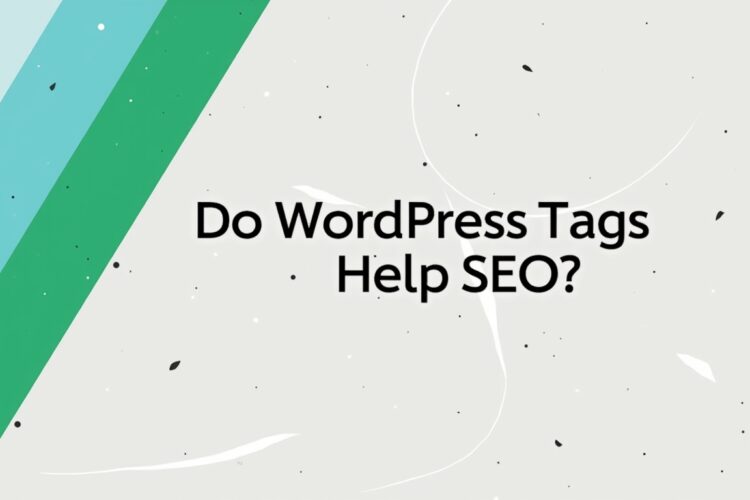
Choosing the right Content Management System (CMS) for your website can feel like picking the perfect tool for a big project. You want something easy to use, but it also needs to help your site show up high on Google searches. That’s where SEO (Search Engine Optimization) comes in—it’s all about making your website easy for search engines to find and rank. With so many CMS options out there, which one is the best for SEO in 2025? Let’s break it down in a simple way, compare the top choices, and share some final thoughts to help you decide.
What Makes a CMS Good for SEO?

Before we dive into the best CMS platforms, let’s talk about what makes a CMS great for SEO. A good CMS should:
- Load pages quickly: Fast websites rank better on Google.
- Be mobile-friendly: Your site needs to look good on phones and tablets.
- Let you customize URLs: Clean, simple web addresses help search engines understand your content.
- Support meta tags and descriptions: These are like labels that tell Google what your page is about.
- Make content updates easy: Fresh content keeps your site relevant.
- Work with SEO tools: Plugins or built-in features can help you fine-tune your SEO.
Now, let’s look at the top CMS platforms and see how they stack up for SEO.
1. WordPress
WordPress is the most popular CMS in the world, powering over 40% of all websites. It’s like the Swiss Army knife of website builders—flexible, user-friendly, and packed with SEO features.
Why WordPress is Great for SEO
- Plugins: WordPress has plugins like Yoast SEO and Rank Math that guide you step-by-step to improve your SEO. They help you add meta tags, create sitemaps, and check if your content is easy to read.
- Speed: With the right hosting and plugins like WP Rocket, WordPress sites can load super fast.
- Mobile-friendly themes: Thousands of WordPress themes are designed to work perfectly on phones.
- Custom URLs: You can easily change your web addresses to make them short and clear.
- Frequent updates: WordPress lets you add new content in minutes, keeping your site fresh.
Drawbacks
- WordPress can be a bit tricky to set up if you’re new to websites.
- Too many plugins can slow your site down if you’re not careful.
Best For
WordPress is perfect for bloggers, small businesses, and anyone who wants full control over their SEO without needing to be a tech expert.
2. Shopify
Shopify is a CMS built for online stores. If you’re selling products, Shopify makes it easy to set up a shop and get noticed on Google.
Why Shopify is Great for SEO
- Built-in SEO tools: Shopify lets you edit meta titles, descriptions, and URLs right from the dashboard.
- Fast loading: Shopify hosts your site on its own servers, so pages load quickly.
- Mobile-friendly: All Shopify themes are designed to work on phones and tablets.
- Blog feature: You can add a blog to your store to share helpful content and boost SEO.
- App integrations: Apps like SEO Booster help you track and improve your rankings.
Drawbacks
- Shopify is pricier than other CMS options, with plans starting at $39/month.
- It’s less flexible for non-store websites, like blogs or portfolios.
Best For
Shopify is ideal for e-commerce businesses that want a simple, SEO-friendly platform for their online store.
3. Wix
Wix is a drag-and-drop website builder that’s super easy to use. It’s great for beginners who want a good-looking site without much effort.
Why Wix is Great for SEO
- SEO Wiz tool: Wix’s built-in SEO Wiz creates a custom plan to improve your rankings, like adding meta tags and submitting your site to Google.
- Mobile optimization: Wix automatically makes your site mobile-friendly.
- Fast hosting: Wix sites load quickly thanks to their cloud-based hosting.
- App market: You can add SEO apps like Site Booster to help your site rank higher.
Drawbacks
- Wix sites can be harder to move to another CMS later.
- Some advanced SEO features, like editing sitemaps, are limited.
Best For
Wix is great for small businesses, freelancers, or anyone who wants a quick, easy-to-build site with decent SEO tools.
4. Squarespace
Squarespace is known for its beautiful templates and sleek designs. It’s a favorite for creatives like photographers and artists.
Why Squarespace is Great for SEO
- Clean code: Squarespace sites are built with simple, search-engine-friendly code.
- Mobile-friendly templates: Every Squarespace design works well on phones.
- Built-in SEO tools: You can edit meta tags, URLs, and alt text for images.
- Fast loading: Squarespace hosts your site, so it’s quick and reliable.
Drawbacks
- Squarespace has fewer SEO plugins compared to WordPress.
- It’s less flexible for advanced SEO tweaks.
Best For
Squarespace is best for creatives and small businesses that want a stylish site with solid SEO basics.
5. Joomla
Joomla is a less popular but powerful CMS that sits between WordPress and Drupal in terms of complexity. It’s great for people who want flexibility but don’t mind a bit of a learning curve.
Why Joomla is Great for SEO
- SEO extensions: Joomla has extensions like sh404SEF that help you manage URLs and meta tags.
- Customizable: You can tweak almost every part of your site for SEO.
- Mobile-friendly templates: Many Joomla templates are built for phones.
- Content management: Joomla makes it easy to organize and update content.
Drawbacks
- Joomla is harder to learn than WordPress or Wix.
- It has fewer SEO plugins compared to WordPress.
Best For
Joomla is good for tech-savvy users or businesses that need a custom site with strong SEO features.
Comparing the CMS Platforms

Here’s a quick comparison to help you choose:
| CMS | Ease of Use | SEO Tools | Speed | Cost | Best For |
|---|---|---|---|---|---|
| WordPress | Medium | Excellent | Fast | Free (with hosting) | Bloggers, businesses |
| Shopify | Easy | Good | Fast | $39+/month | E-commerce |
| Wix | Very Easy | Good | Fast | $16+/month | Beginners, small businesses |
| Squarespace | Easy | Good | Fast | $16+/month | Creatives, small businesses |
| Joomla | Hard | Good | Fast | Free (with hosting) | Tech-savvy users, custom sites |
Tips to Boost SEO on Any CMS
No matter which CMS you choose, here are some simple ways to improve your SEO:
- Use keywords: Include words people search for in your titles, headings, and content.
- Add alt text to images: Describe your images so Google knows what they are.
- Write clear meta descriptions: Summarize your page in 160 characters or less.
- Link to other pages: Add links to other parts of your site to keep visitors around.
- Update regularly: Post new content to show Google your site is active.
Final Thoughts
Choosing the best CMS for SEO depends on your needs. If you want the most control and tons of SEO tools, WordPress is hard to beat. For online stores, Shopify is a fantastic choice with its built-in features and speed. Wix and Squarespace are great for beginners or creatives who want a good-looking site without much hassle. Joomla is a solid pick for those who don’t mind a bit of extra work for more flexibility.
In 2025, Google cares about fast, mobile-friendly, and easy-to-read websites. Any of these CMS platforms can help you build a site that ranks well if you use them wisely. Think about your budget, how much time you can spend learning, and what kind of website you’re building. Then, pick the CMS that feels right for you and start creating!





